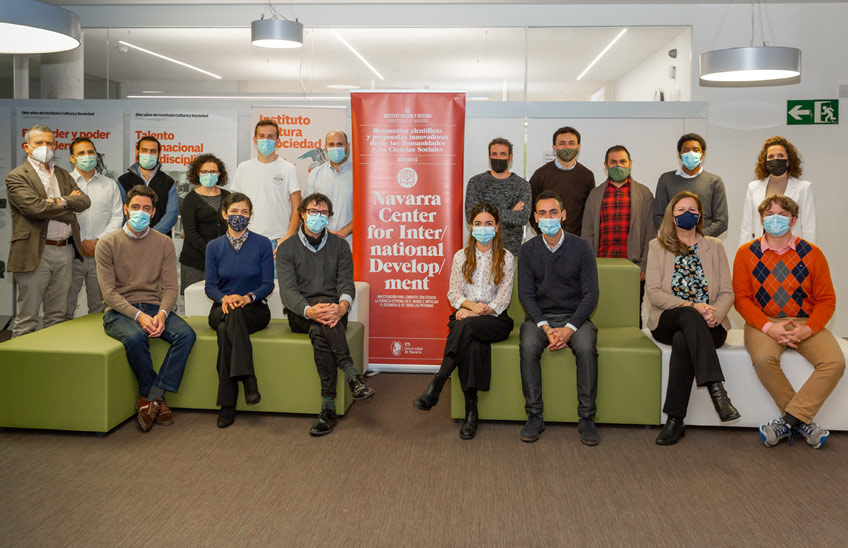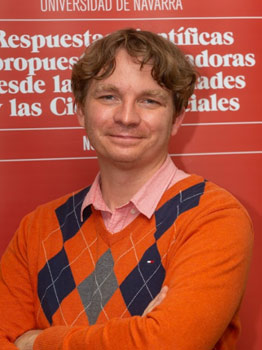"Urban change in the most deprived neighborhoods can alleviate poverty for millions of people."
Anthony Boanada-Fuchs, from high school St. Gallen of management in Latin America, spoke at an NCID workshop at the University of Navarra.

FotoManuel Castells<br>/Ponentes y asistentes del workshop 'Urban deprivation: from Earth Observation to Urban Policies', organizado por el NCID del Instituto Cultura y Sociedad.
21 | 12 | 2021
"An urban change in the most depressed neighborhoods of the countries at development can alleviate the poverty of millions of people". This was stated by Anthony Boanada-Fuchs, expert of the St. Gallen Institute of management in Latin America (Switzerland), at the framework of a workshop organized by the Navarra Center for International Development (NCID) of the Institute for Culture and Society (ICS) of the University of Navarra.
 He assures that his team is aware of the large impact that implementing urban planning changes can have on the places where it intervenes.We are therefore very careful when selecting and ranking projects," he says. "That's why we are very careful in selecting and ranking projects," he says.
He assures that his team is aware of the large impact that implementing urban planning changes can have on the places where it intervenes.We are therefore very careful when selecting and ranking projects," he says. "That's why we are very careful in selecting and ranking projects," he says.
Boanada-Fuchs pointed out that in the characterisation of slums - shanty towns in the poorest suburbs - "the data and, specifically, connecting them with demographic information and the data housing information on the ground are very important". In this line, he stressed the great importance of "collecting quality information, organising it efficiently and analysing it in detail".
Open-air dumps in shantytowns
Satellite snapshots, as well as information from mobile apps and GPS, complement socio-economic indicators of poverty. This is according to Ángela Abascal, pre-doctoral researcher at NCID and promoter of the activity. School of ArchitectureThe project is being promoted by Ángela Abascal, a pre-doctoral researcher at NCID and a collaborator of NCID. As she said in an interview with Diario de Navarra, these images have made it possible to discover open-air rubbish dumps in shantytowns in Nairobi (Kenya).
"They help us to better understand real urban problems," he added. "Thanks to them, we can find out how much rubbish accumulates in a place, how far away a hospital or a school is".
In addition to Anthony Boanada-Fuchs, the workshop 'Urban deprivation: from earth observation to urban policies' featured Monika Kuffer, professor at the University of Twente (The Netherlands); Stefanos Georganos, researcher of the Royal Swedish Institute of Technology high school and Pere Roca, IT developer at the United Nations and the European Commission.
